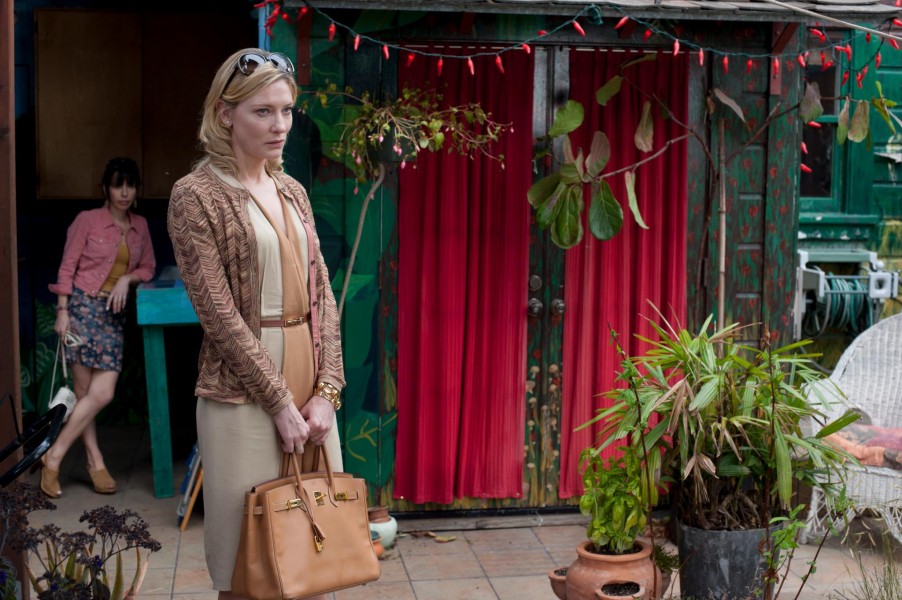After way too many comedies (the last one –To Rome with Love– was impossibly redundant) Woody Allen returns to heavy drama for the first time since Match Point, the crown jewel of his Scarlett Johansson period. The outcome is remarkable: Blue Jasmine is a dark examination of mental unraveling triggered by modern malaise.
A phenomenal Cate Blanchett is the Jasmine in question. The widow of a Madoff-type tycoon (Alec Baldwin), Jasmine doesn’t have a penny to her name but her snobby attitude could fool you. Having to move to a dingy townhouse with her sister Ginger (Sally Hawkins) is just the beginning of a series of indignities Jasmine must endure. Her inability to adapt to her new situation causes severe damage to her psyche, but she still believes she knows better than the rubes around her.
Loosely inspired by A Streetcar Named Desire, Blue Jasmine is a cautionary tale about money and how it defines us: You don’t have to be destitute to be lost without it. The film also makes a case against blind love — to fully give oneself to another all but guarantees that the relationship will implode sooner or later.
Misanthropic Woody has been here all along (Crimes and Misdemeanors, Husbands and Wives), but now there’s an additional bitterness in his voice.
I can’t say enough about Cate Blanchett’s work. We get to meet her character in better days via flashbacks. Hints of her delicate mental state are dropped subtly, anticipating the full-on breakdown ahead. After being missing from the scene for a couple of years, Blanchett returns in fine form. She is clearly the frontrunner for next year’s Academy Awards.
Blue Jasmine is also a very well-cast movie. Nobody would ever accuse Andrew Dice Clay of being a good actor, but he’s perfect as Ginger’s resentful ex-husband. Same goes for Louis C.K. who knocks it out of the park as an unassuming lothario.
Woody Allen is 78 now. The fact he can deliver quality entertainment one a year is nothing short of astounding. If Malcolm Gladwell is right, he’ll only get better.
Four prairie dogs with issues.






